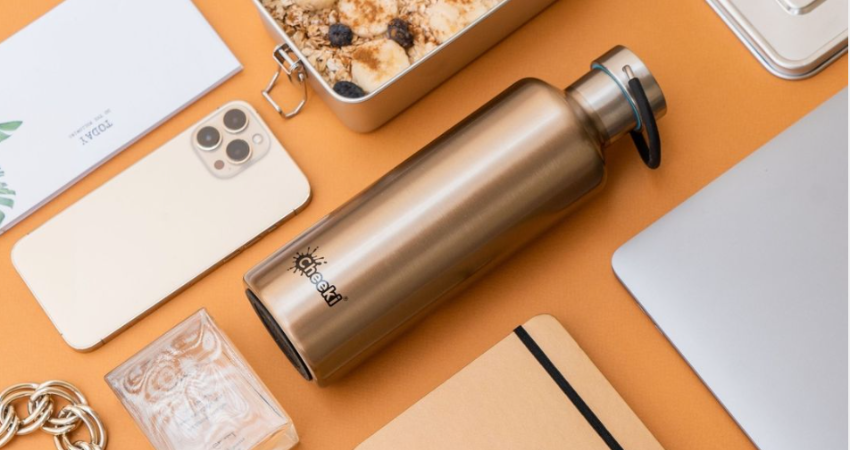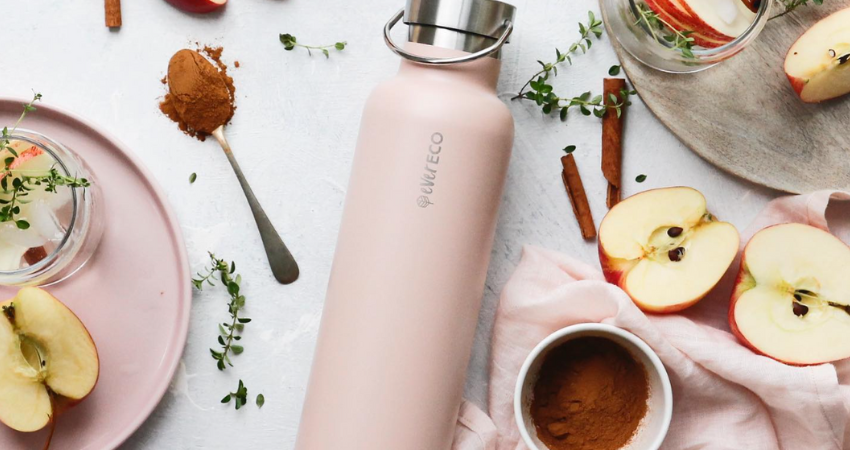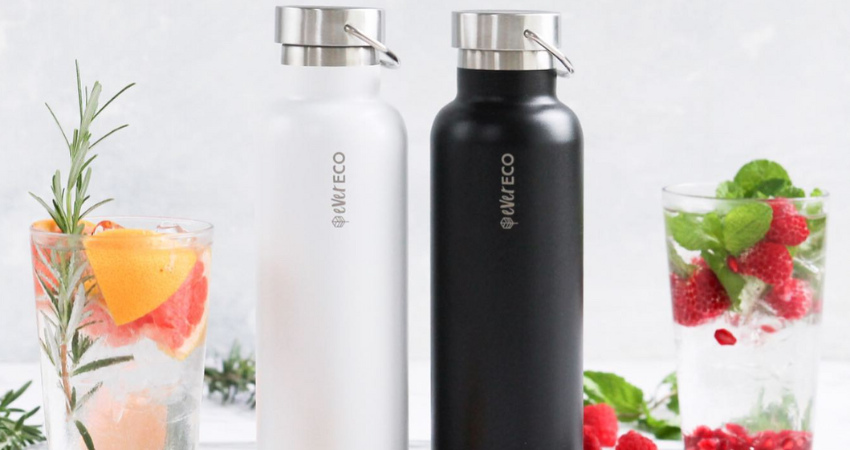If you're looking for the best water bottle, there are a few factors to consider. Glass is free from BPA and BPS, and does not contain any toxins. Plastic bottles are more likely to release chemicals, particularly if it is being reused. Stainless steel is the best choice when it comes to reusability.
The best water bottle is the one you like and will actually use. If you're not into it, then it doesn't matter how much it costs or what features it has - you won't keep using it.
But if you're having trouble deciding which water bottle is right for you, here are some factors to consider:
.png)
Can water bottle make you sick?
Plastic water bottles are bad for the environment and your health.
If you think about it, it makes sense: plastic is made from crude oil, which is a non renewable resource. The process of making plastic requires a lot of energy and leaves behind toxic chemicals that can leach into the water.
Plastic water bottles contain these chemicals because they're added during the manufacturing process. To make plastic bottles more durable and shatter proof, manufacturers use a polymer called polyethylene terephthalate (PET). PET is created using one or more additives that can leach into liquid stored inside the bottle over time - and that includes your water!
In addition to the environmental impact of producing plastic, there are also health concerns related to using it. Studies have shown that BPA (bisphenol A), a chemical found in many plastics, can cause reproductive problems and other health issues. BPA is a chemical found in most plastics that can leach into your drink when the bottle is exposed to heat or scratched. Even if you don't notice any changes in taste or smell, BPA can still be released into your beverage. On top of it, plastic water bottles take up to 1,000 years to decompose and they won’t keep your water cold for long.
On the other hand, plastic water bottles can be recycled. So when you're done with your bottle, you don't have to throw it away! Just recycle it, and start a new one. Plastic bottles are also easy to carry around. They fit in your backpack or purse, and they're light enough that you don't even notice them when they're empty!
Glass water bottles are better for your health and the environment. Glass is naturally resistant to bacteria and mould, so it won't leach chemicals into your water - which is a big plus! It's also free of BPA, so the plastic chemical that has been shown to cause cancer and other health issues won't be in your water. This means that you don't have to worry about your water being contaminated with any harmful chemicals, especially if you're using a reusable bottle.
Glass water bottles are also easier to recycle than plastic ones. They can be recycled with other glass products like jars and windows, which means you'll be able to toss your bottle in with your other glass recyclables without having to worry about sorting them out by hand.
The only downside of glass bottles is that they’re heavy and breakable. Glass water bottles help keep your drinks colder and hotter longer than plastic ones do! However, if you want a bottle that’s lightweight, try stainless steel or aluminium.

Stainless steel is the best choice when it comes to reusability. Stainless steel water bottle is made from a durable material that can withstand many years of use without breaking or corroding. This makes them ideal for commuters and people who need to carry around water constantly, like athletes, hikers and campers.
Plastic bottles are also an option if you’re looking for something inexpensive but don’t want to spend a lot of money on a stainless steel bottle. Plastic bottles are often sold at cheaper prices compared with their metal counterparts because they’re made with common materials. They also have a larger capacity than most stainless steel water bottles do - meaning they hold more liquid at once!
However, there are some drawbacks associated with using plastic bottles over stainless steel ones: First off all these types of bottles contain harmful chemicals which could leak into your drinking source over time. Also these containers may look cool but they tend not last very long before cracking under pressure (AKA dropping).
It's a vicious cycle: you can't drink enough water because you're always thirsty, but you're always thirsty because your body doesn't feel like it's getting enough water.
The solution? An insulated water bottle.
The problem with most regular water bottles is that they're not insulated, which means that your cold water will be room temperature by the time you get to it - and if that happens to be in the middle of winter and it's freezing outside? Your water will be ice cold! And if that happens to be in the middle of summer and it's 100 degrees out? Your water will be lukewarm.
Not so with an insulated water bottle! It keeps your drink cold or hot for hours, no matter what time of year it is. The best part is that these bottles are super stylish, so you don't have to worry about looking like a dork while drinking from them. An insulated water bottle will keep your water cool for hours. In fact, Cheeki Chiller insulated water bottle keeps liquid cold for up to 48 hours. This is great for those long trips or hikes during summer where you need your water to stay cold for longer periods of time. It also has a wide opening for ice cubes, which may provided extended cooling time.

The best water bottle for keeping your water hot is one that has a double wall water bottle. The double walled design traps heat inside the bottle, keeping it warm longer (up to 24 hours) than a single walled design.
Cheeki bottle are an excellent choice for this purpose. They have a range of double wall design and they comes in several different sizes and colors so that you can find one that works best for your needs.
Both glass and stainless steel are good options, but do your research on the brand before you buy!
Glass is a good option for health, because it's BPA free. However, glass bottles can break more easily if they're dropped or knocked over. Stainless steel is more durable than glass, but can be expensive. Research the brand before you buy! There are many options available in each category. Don't buy a cheap bottle that will break quickly!
Cleaning your water bottle is important, not only for your health but also for the environment. You should wash your reusable bottle regularly with warm soapy water and dry it thoroughly before using again. You can also use a bottle brush to get into all those hard-to-reach corners. If you're using a disposable plastic or aluminium bottle, throw it in the recycling bin when you're done.

So, what is the best water bottle? It really depends on what you’re looking for in a bottle! Are you looking for something that will keep your water cold or hot all day long? Do you want something that is reusable and durable enough to last through your next adventure? Glass or stainless steel bottles are both great options, but make sure they have the features that match your needs before making a purchase. If you need more information, read this article next Top 5 reusable water bottles: say 'no' to plastic
RECOMMENDED PRODUCTS